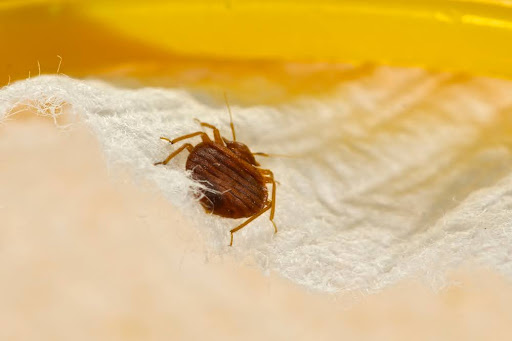No one wants their dream vacation or business trip interrupted by a surprise discovery of bed bugs in their hotel room. Or worse, to cart them home unexpectedly.
Unfortunately, these itchy pests are not just a nightmare for guests—they also pose significant challenges for property owners and managers.
Bed bugs are major nuisances that can lead to legal battles, health concerns, and a tarnished reputation for hotels. For guests, the issue of fair compensation for bed bugs in hotels can become a pressing matter when facing health impacts or inconvenience.
For homeowners, property managers, and pest control professionals in the San Francisco Bay Area, bed bug infestations in hotels reflect the broader need for proactive pest control solutions.
Especially in high-density areas where infestations can quickly spread, addressing the problem head-on (ideally, before it starts) is of the utmost importance.
Whether you’re running a hotel or a rental property, staying on top of pest management can save you from major issues down the road. That’s where professional pest control services like ours come into play.
Bed Bugs in Hotels: The Legal and Health Implications
When bed bugs are discovered in a hotel, the law doesn’t just look the other way. Guests who experience bites or other inconveniences might pursue legal claims for compensation.
To determine what “fair compensation for bed bugs in hotels” means, courts often look at factors like medical costs, emotional distress, and ruined belongings. For many hotels, legal action from guests isn’t just about shelling out settlements, but can also chip away at a business’s reputation and damage customer trust.
Beyond the legal implications, health concerns are significant. Bed bugs can cause itchy, red welts that might lead to secondary infections for individuals sensitive to bites.
Emotional and psychological stress is another major factor, as guests often feel uncomfortable returning home for fear of transporting bed bugs with them. From a health and safety standpoint, this makes early intervention absolutely necessary.
Especially in high-traffic areas like San Jose and the East Bay Area, hotels need regular pest control measures to ensure that bed bugs don’t get a chance to settle in. With an influx of tourists and business travelers, infestations in hotels can spread easily and can affect the reputation of the entire neighborhood.
Spotting Bed Bugs Early and What Makes Their Lifecycle Challenging
Anyone with eyes can look for the telltale signs of a bed bug infestation—blood stains on bedding, small black specks (their droppings), or even live bugs themselves. But catching an infestation early requires more than random visual checks. Bed bugs are experts at hiding in box springs, mattresses, carpeting, or even behind headboards and electrical outlets.
Here’s what makes bed bugs so hard to beat and why professional pest control is often non-negotiable—these critters have a robust lifecycle. Bed bugs go through five nymph stages before reaching adulthood, and females can lay up to 500 eggs in their lifetimes. This means even a single bed bug infestation can grow exponentially if left unchecked.
Hotels in our area, particularly in places like the East Bay where urban and suburban environments merge, are prime targets for infestations. As a property manager, you must remain vigilant, as these bugs don’t just pose risks for guests—they can easily travel between rooms, creating complex and expensive problems for all involved.
Why Professional Pest Control Matters
If you’ve spotted—or even just suspect—bed bugs in a property you manage, addressing an infestation quickly can make all the difference. DIY methods often claim to solve the issue, but most fall far short of actually eliminating the bugs. For example, while heat treatments or sprays may kill the visible adult bed bugs, improperly applied solutions might not reach their eggs or hidden nymphs.
That’s why working with a professional pest control team (like us!) is key. We have access to advanced methods like thermal remediation or industrial-grade pesticides that are more effective at wiping out infestations across all stages of a bed bug’s life cycle. Plus, our trained technicians know where to look—even in places you wouldn’t think to inspect.
For hotel managers looking to win back guest trust or avoid costly legal payouts involved with the fair compensation for bed bugs in hotels, professional pest control can also demonstrate your commitment to guest safety. Prevention and transparency go a long way in maintaining your reputation.
How to Prevent Issues Before They Arise
It’s always easier (and cheaper) to prevent an infestation than to respond to one.
Annual pest control inspections should be part of any property manager’s routine, especially in densely populated or high-traffic areas like the San Francisco Bay and San Jose.
Maintenance staff should receive training on how to identify bed bug signs during routine cleaning.
Guests often bring bed bugs unwittingly into a property on their luggage, so focusing efforts on prevention—like installing encasements on mattresses and box springs—can make an impact.
Also, offering your property team access to professional guidance helps make sure infestations can be addressed as soon as they’re suspected.
Why We’re Your Go-To in the Bay Area
Covering San Francisco Bay, San Jose, and the East Bay Area means we deeply understand the unique pest control needs of our region and its hotels. From dense urban settings to sprawling suburban hotel chains, we’ve seen—and solved—all kinds of bed bug issues.
Our approach isn’t just about eliminating pests but ensuring they don’t return. We tailor our solutions based on your property’s needs and implement proactive measures that keep infestations at bay. With our friendly and well-trained team, property managers and homeowners alike can feel at ease knowing their spaces are in capable hands.
If you’re a property manager or homeowner dealing with pests, we’d love to hear from you. Reach out to Banner Pest Control today, and protect your space from bed bugs before they become a bigger problem.


